|
Did you know the most common (and accepted) plural word for octopus is octopuses? It is not octopi. Actually the proper word is octopodes. Here's why: If the word octopus had come from Latin (like syllabus or alumnus), the correct plural form would be octopi. But octopus actually came from Greek, and in Greek the correct plural is octopodes. But the word octopodes never really caught in, so most people use octopuses. And... did you know octopuses are mollusks? Yep, they are in the same animal phylum as snails, slugs, clams, oysters, and squid (as well as many others). I know... they don't look anything like a snail or a clam, right? AND... did you know there are about 300 species of octopuses? And if there is one type that deserves to have squishy toys made in its image—it has to be the dumbo octopus. What the heck is a Dumbo Octopus? Dumbo octopuses include about 13 species of umbrella octopuses (a group that kind of look like an umbrella when they spread their tentacles). The name dumbo comes from the fact that they have two fins that spread out above the eyes, resembling the oversized ears of Dumbo the elephant (from the 1941 animated Disney film). Actually, very little is known about the dumbo octopus, but we know enough to be confident that they are awesome! Let's take a look. Amazing facts about the Dumbo Octopus You're not going to see a dumbo octopus while you're out snorkeling in shallow water. Why? Because these octopuses live deep in the ocean. Most of them live at depths of about 13,000 feet (4,000 m), and some have been found as deep as 23,000 feet (7,000 m). That's over four miles down! Chances are, they live even deeper than that. This makes them by far the deepest living of all the octopuses. Dumbo octopuses appear to move through the water by slowly flapping their ear-like fins, but actually they are gently squirting water from their tentacle-funnel, and their ear fins are providing stability and steering. They can also crawl along the sea floor with their tentacles (you can call them arms if you want, but I just like to say the word tentacles). Since these methods of movement are slow, to escape from predators they also can dart away by aggressively squeezing water out. They do this by expanding and contracting their tentacles, making use of the funnel-like webbing between their tentacles. Dumbo octopuses are fairly small, averaging about 8 to 12 inches (20-30 cm) long, about the size of a guinea pig. But larger ones have been found. The largest of these was 5 feet 10 inches (1.8 m) long and weighed 13 pounds (5.9 kg). I guess you could call that one a jumbo dumbo octopus. Since dumbo octopuses live so deep, they are not threatened much by human activity. But they do have to worry about sharks and predatory cephalopods (such as larger octopuses and squid). Dumbo octopuses are quite rare and difficult to find, so we don't know much about their population size, and we really don't know if they are threatened or if they simply are naturally scarce. Dumbo octopuses may look cute and cuddly, but they are efficient and deadly predators. They typically float around in the open water, gently flapping their "dumbo ears" (fins), and when they find a fish or other prey, they pounce on it quickly and swallow it in one gulp. Their most common prey animals include worms, various crustaceans, copepods, amphipods, and isopods (that's a lot of pods). Below is a dumbo octopus catching a fish. These creatures have a rather unusual sex life. First of all, there is no distinct season for breeding. Why? Because, this deep in the ocean, seasons don't have any significance. Not only that, but food is often scarce. And the ocean is a huge place! So these octopuses rarely encounter each other. So when a male does occasionally encounter a female, he uses a special protuberance on one of his arms to deliver a sperm packet into the female's mantle. The female then stores the sperm in her body and uses it when she happens to detect that her environment is favorable for laying eggs (kind of like putting a cookie in your pocket and saving it for later when you might get hungry). And, amazingly, the females usually have numerous eggs stored, and these eggs are at different stages of development, so that the female is ready with mature eggs whenever conditions happen to be right to fertilize the eggs and lay them (it's time to get that cookie out and munch on it). The female typically lays her eggs attached to the bottoms of rocks on the ocean floor. In the photo below you can see the eyes of the developing embryos within the eggs. Amazingly, scientists aboard a research vessel in 2005 were able to observe a baby dumbo octopus hatch out of an egg in a dish. It was the first time such a thing had been witnessed and filmed. Check out this video of the newly-hatched octopus! Notice how huge the "ear fins" are when these creatures are this young. And check out this video of an adult dumbo octopus. One more fascinating tidbit. Dumbo octopuses have hairy arms. Well, they aren't really hairs. They are actually called cilia, and they protrude from the octopus's suckers. There are several theories for the purpose of these cilia. First, it is likely they are used in feeding. When the octopus is sitting on the ocean floor, these cilia produce a slight but steady current of water in the direction of the octopus. It is thought that this can lure prey closer. Also, the cilia act kind of like whiskers. When the octopus feels the area around it, the cilia serve as tiny antennae to help find prey. And finally, the octopus uses the cilia to aerate the water around itself, both for its own benefit and to provide more oxygen for its eggs. The cilia produce a current, which pulls oxygen-rich water in from its surroundings to replace the water from which it has already depleted the oxygen. You can see the cilia in the photo below. So, the dumbo octopus deserves a place in the. E.A.H.O.F. (Exquisite Animal Hall of Fame). FUN FACT: The word Exquisite has had several meanings over the centuries. It originally came from exquisitus, a Latin word meaning "choice" or "chosen with care." When it was first used in English, it meant "anything brought to a highly-wrought condition." This included bad things (such as torture) as well as good things (such as art). Finally, in about 1580, it took on its modern meaning, which is "of consummate and delightful excellence." So, exquisite is another way to say awesome! Photo Credits:
Praying mantis in threat posture - Wikimedia via Sunoven Dumbo octopus #1: MBARI via Ocean Conservancy Dumbo octopus #2, swimming - Oceana.org Dumbo octopus capturing fish - Ocean Exploration Trust via NautilusLive Dumbo octopus eggs - Albers Dumbo octopus showing cilia - Octolab.tv
2 Comments
Leave a Reply. |
Stan's Cogitations
Everyone needs a creative outlet. That's why I write. Archives
April 2024
|

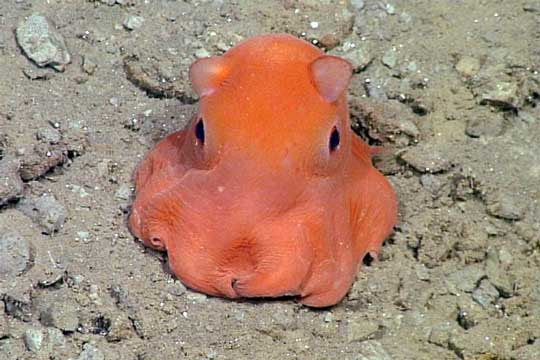
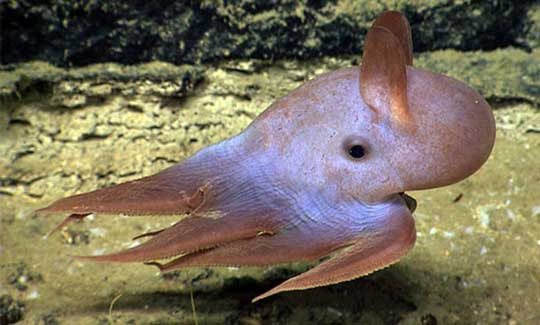
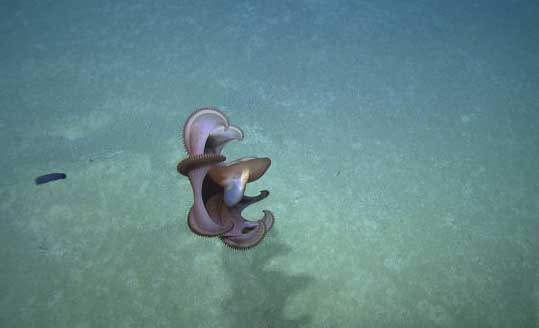
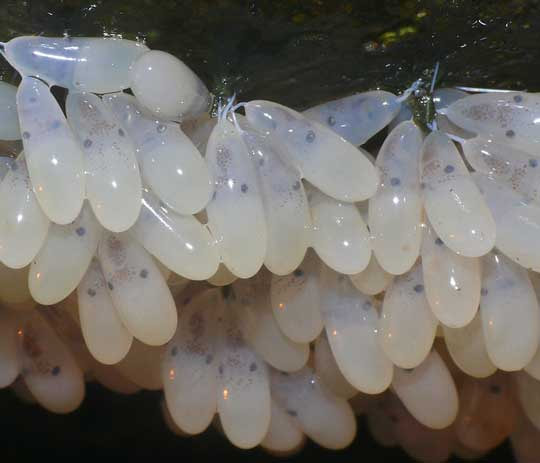
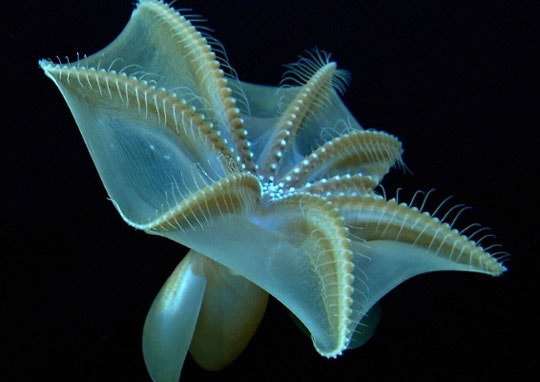
 RSS Feed
RSS Feed